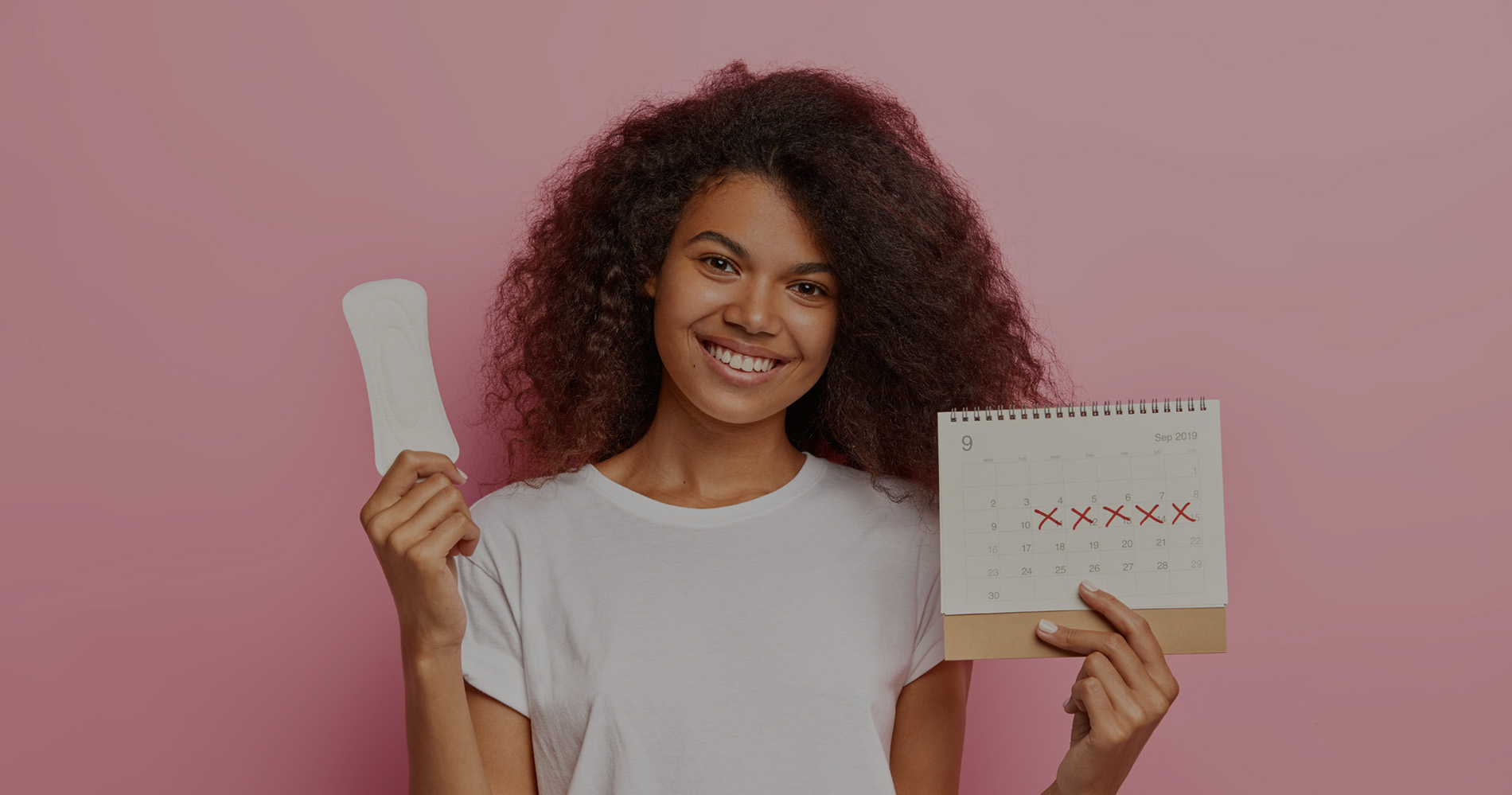Our experts tell us the top signs of your child’s first period and how to talk about menstruation with them.
Author Jen Bell | Reviewed by Staci Tanouye, M.D.
How can you tell when a period is about to start for the first time? Bodies have their own programming — if you started your period at age 13, that doesn’t mean that your child will, too.
And the age of onset can vary wildly. Most people assigned female at birth will start their period between the ages of 9 and 14, but it can start in kids as young as 8, and the average age to start a period is 12.
If your teen hasn’t had their first period by their 15th birthday, it’s a good idea to speak with a doctor.
HEADS UP > Though we at BLOOM use the term “daughter” above, we will use they/them pronouns going forward. This guide helps you navigate your preteen or teen’s first period, regardless of their gender identity.
Signs of a First Period
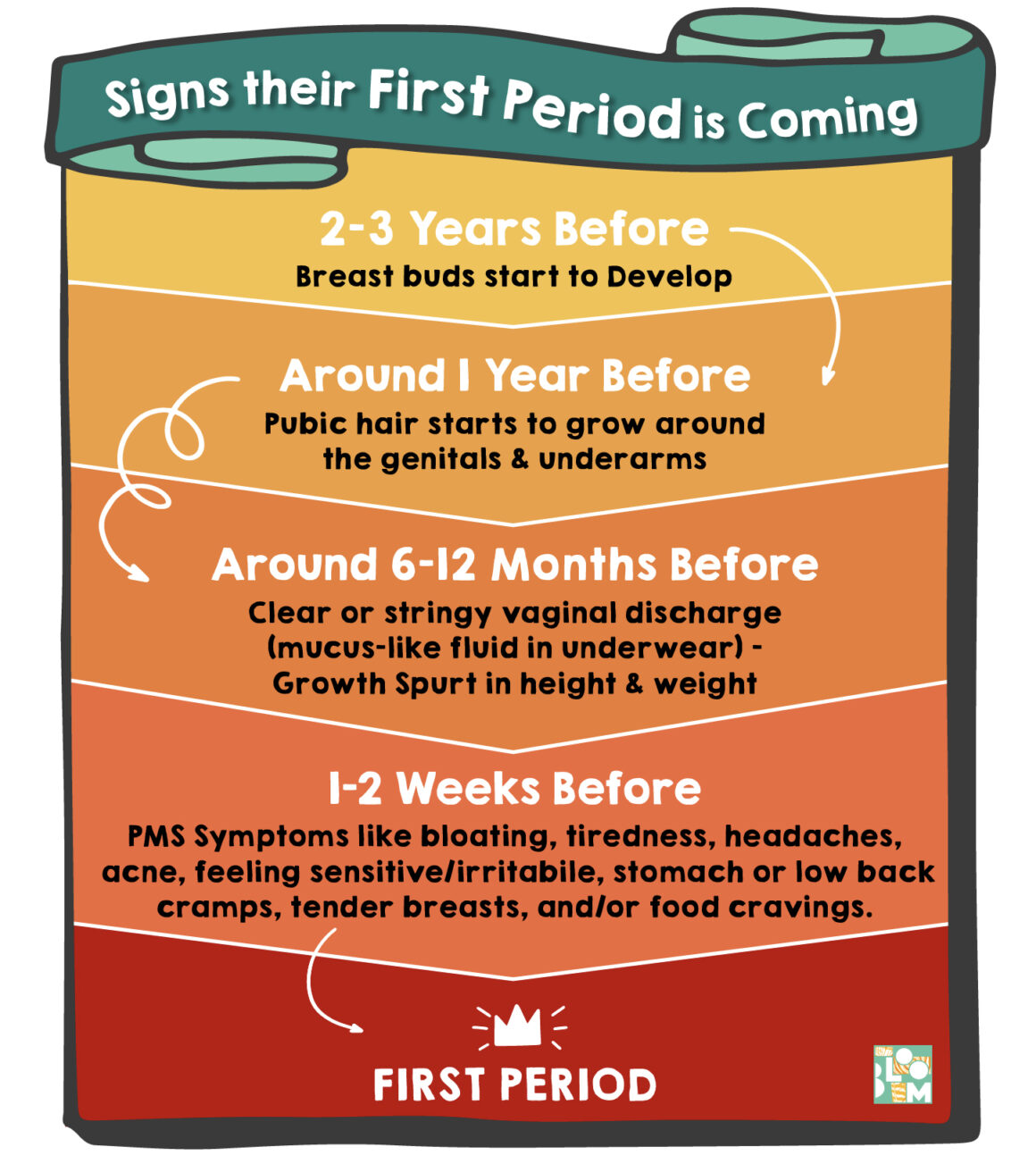
There are some signs that a period is about to begin — and once you know those, you’ll be better equipped to support your preteen. Some signs to be on the lookout for:
- Breast Buds Develop: Breast development starts 2-3 years before their first period begins
- Pubic Hair and Underarm Hair Start to Grow: Pubic hair starts to grow around their genitals & underarms around 1 year before their first menstrual cycle.
- Vaginal Discharge and Other Signs: Around 6-12 months before, they might experience a growth spurt in height and weight. They might also see or feel vaginal discharge — clear or stringy muscus-like fluid — in their underwear. (As a caregiver, you might notice it while doing laundry.)
- PMS Symptoms: Around 1-2 weeks before, they might experience premenstrual syndrome (PMS) symptoms.
What Is Premenstrual Syndrome (PMS)?
While PMS carries some negative stereotypes, many people report positive effects, too. Sharing both the symptoms and potential upsides with your preteen or teen might help manage any anxiety they have around experiencing PMS.
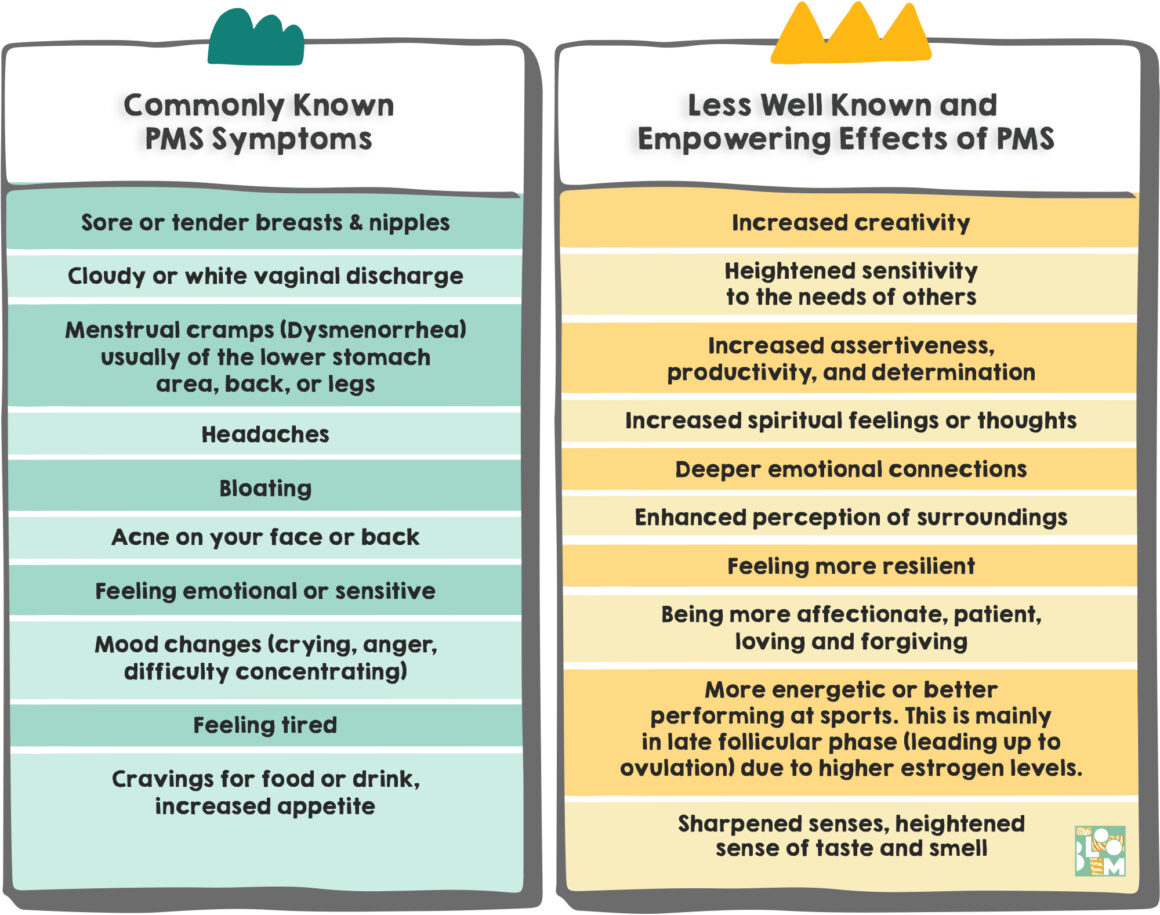
Common PMS symptoms:
- Sore or tender breasts and nipples
- Cloudy or white vaginal discharge
- Stomach or back cramps
- Headaches
- Bloating
- Facial or back acne
- Increased emotion or moodiness (like crying, anger, or difficulty concentrating)
- Fatigue
- Increased appetite and cravings
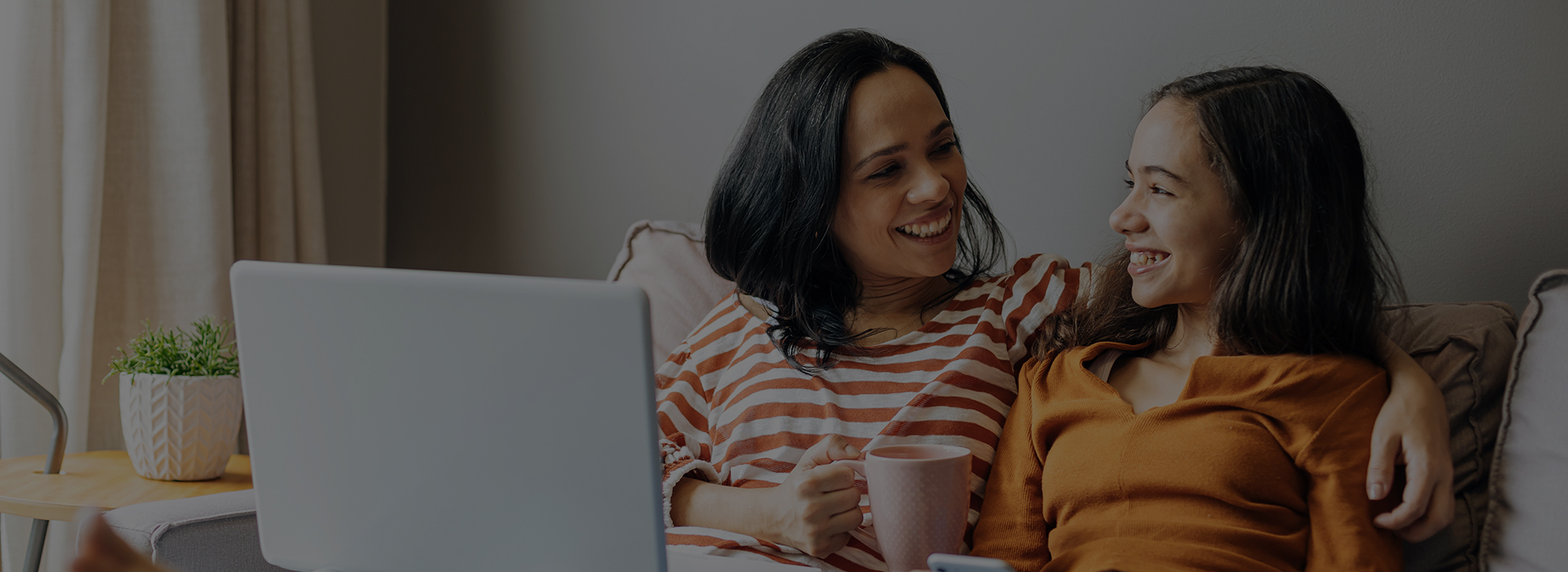
Ready to elevate your parenting? Become a member of the BLOOM family today!
Gain access to workshops, coaching, and a network of supportive parents. Don’t navigate this journey alone –
Some empowering effects of PMS:
- Increased creativity
- Heightened sensitivity to others’ needs
- Increased assertiveness, productivity, and determination
- Deeper emotional connections
- Increased spiritual awareness
- Enhanced perception of surroundings
- Increased resilience
- Expressing more affection, patience, and forgiveness
- More energetic and/or increased athletic performance. (This is mainly in the late follicular phase, leading up to ovulation and is due to higher estrogen levels.)
- Sharpened senses (a heightened sense of taste and smell)
PRO TIP > Encourage your teen to explore the BLOOM TEEN HUB to learn all about their skin and skin care, written just for them!
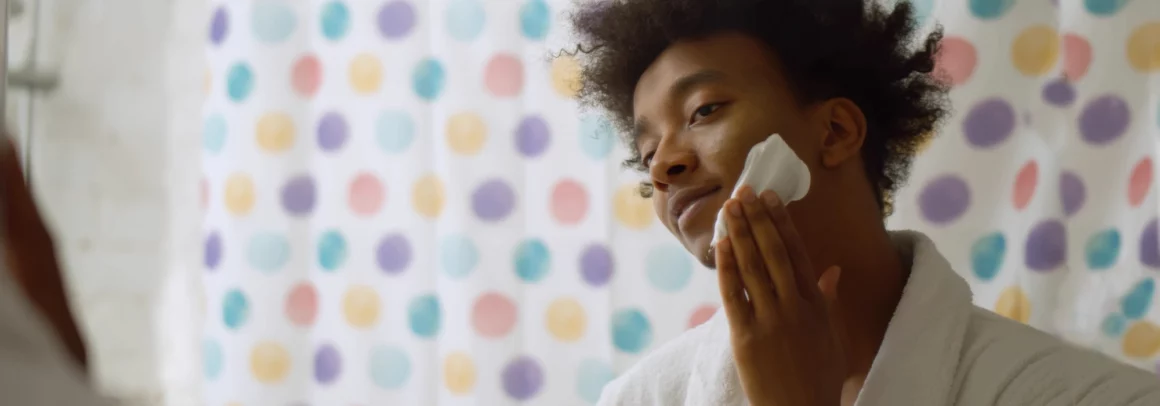
Talking About Periods
Talking with your preteen or teen about what they can expect with their first period doesn’t need to be daunting or a mystery. The more you talk with your child about what’s going on in their body, the more prepared they will be for their first period.
Remember to:
- Know Your Period Basics: Educate yourself on the basics of periods and the changes they will go through during puberty.
- Talk Early and Often: Look for teachable moments to talk about puberty and periods.
- Answer their Questions: And, ask what they already know about periods. If they ask you questions, answer simply and honestly.
- Be Period Positive: Avoid being negative, instead opting for a positive outlook on their first menstrual cycle.
Want more? Learn more on how to talk to your preteen or teen about their first period.
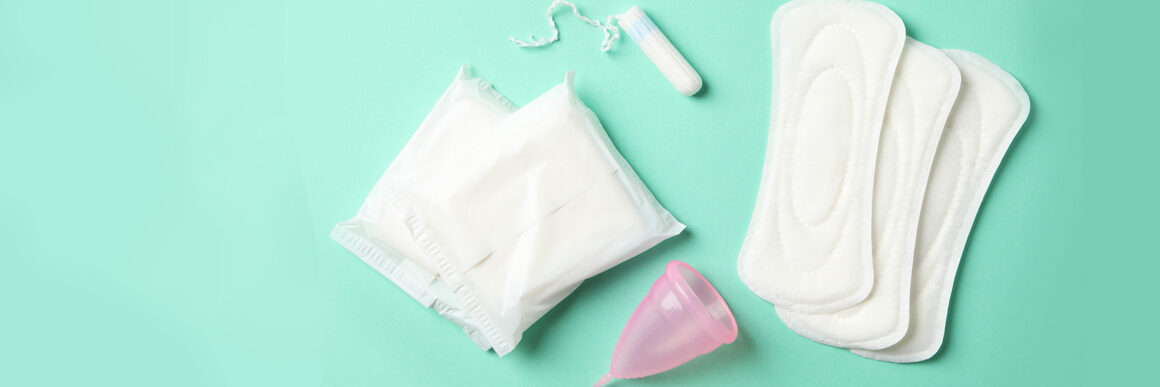
Menstrual Supplies You Should Have in Preparation for Their First Period:
At home: Keep a period kit with a selection of period products including pads, liners, and light tampons, along with a change of underwear. (Check out BLOOM’s First Period Box for everything they’d need.) Make sure the pads range in absorbency level so that they’ll have one to match their flow.
Pads, liners, tampons, menstrual cups? Don’t know where to start? Here are 6 period products to help your preteen or teen feel the most comfortable.
On the go: Pack a small pouch or makeup bag with a smaller version of the period kit for their backpack or locker. They might also want to keep an extra pair of pants or leggings in their locker.
What’s next? How to Talk to Your Child About Their Period
If you are still feeling overwhelmed, don’t worry! BLOOM is here to help. With our library of On-Demand Workshops with our trusted educators, to our Ask the Expert Forum & Live Events where you can get answers to your burning questions from our qualified professionals, to Supportive Community, where you can find strength in a community of other parents and caregivers, to Direct 1-on-1 Parent Coaching Support, we’ve got you. Raising tweens or teens is hard enough. BLOOM is here to make it a little easier.
